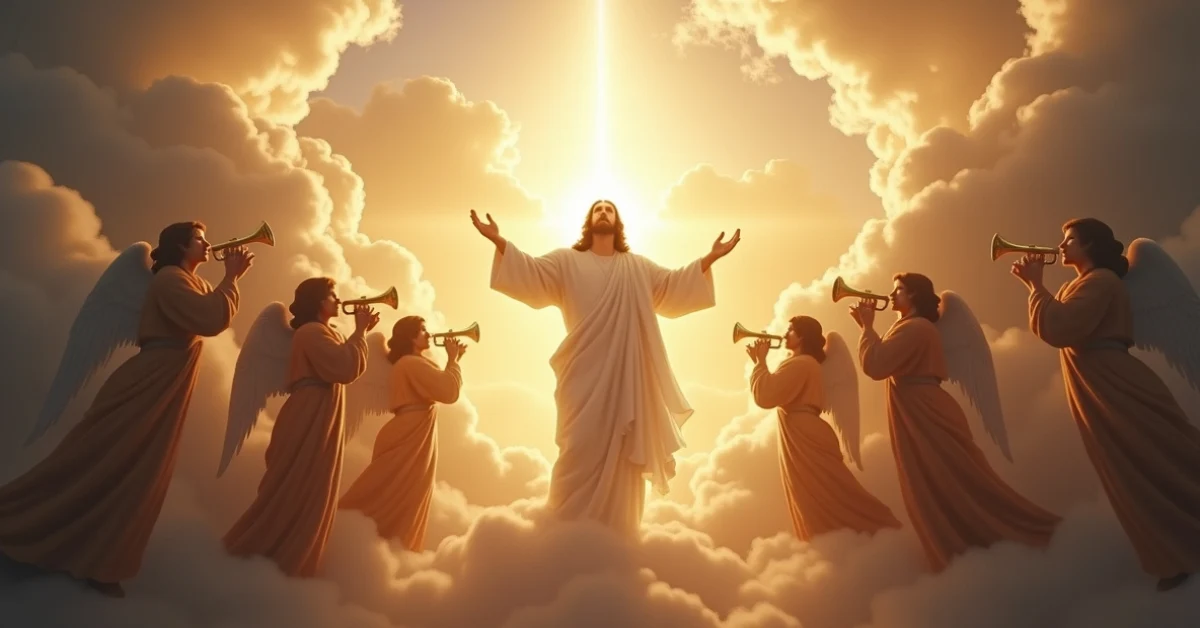Christian Rapture Coming? Viral Pastor Joshua Mhlakela Prediction Fuels End-Times Fashion Trends

The digital landscape has once again become a crucible for eschatological fervor, ignited by a viral prophecy from South African Pastor Joshua Mhlakela. His prediction regarding the Christian Rapture, slated for September 23 or 24, 2025, has not only sparked widespread discussion but has also inadvertently fueled a peculiar, often satirical, phenomenon dubbed “end-times fashion trends” on platforms like TikTok.
In this analysis, I delve into the origins of Mhlakela’s prophecy, the theological underpinnings of the Rapture, and the compelling ways in which social media transforms deeply held beliefs into viral cultural movements.
The Prophecy That Went Viral
The recent surge in end-times speculation can be traced back to South African Pastor Joshua Mhlakela. He garnered significant global attention after claiming to have received a direct vision from Jesus Christ, indicating that the Rapture would occur on September 23 or 24, 2025.
Mhlakela shared this “divine prophecy” in an interview on the CENTWINZTV (also referred to as CettwinzTV) YouTube channel, stating that Jesus declared, “I am coming soon” and specified the dates. He noted that these dates coincide with Rosh Hashanah, the Jewish Feast of Trumpets, a detail often symbolically linked to end-times prophecies in some Christian circles.
The impact of Mhlakela’s message was swift and far-reaching. It quickly transcended traditional church audiences, igniting a significant social media frenzy, particularly on TikTok, where the hashtag #RaptureTok became a trending phenomenon. This virality propelled the prophecy into mainstream awareness, eliciting a wide spectrum of reactions from solemn preparation among believers to widespread skepticism and comedic parodies.
Understanding the Christian Rapture
To fully grasp the reactions to Mhlakela’s prediction, it is essential to understand the theological concept of the Christian Rapture. The Rapture is an eschatological belief, predominantly held by some evangelical Christians, envisioning an end-time event where Jesus Christ will return to Earth and gather all true believers, both living and resurrected, to ascend to heaven.
This belief is rooted in interpretations of biblical passages, most notably 1 Thessalonians 4:13–17, which describes believers being “caught up together with them in the clouds to meet the Lord in the air”.
It is important to note that the term “Rapture” itself does not appear in the New Testament but is derived from the Latin word *rapio*, meaning “to snatch away” or “to seize”. This doctrine is typically associated with dispensational premillennialism, a theological framework that interprets various biblical prophecies as unfulfilled events destined to occur in the future.
However, most Christian denominations do not subscribe to this specific Rapture theology, often interpreting the scriptural references differently and not recognizing a distinct pre-tribulation Rapture event. Historically, predictions of the Rapture and the end of the world have surfaced numerous times, with prominent examples including Harold Camping’s predictions in 1994 and 2011, all of which ultimately failed to materialize.
This historical pattern underscores a tension with Matthew 24:36, which states that “no one knows the day or hour” of Christ’s return except God the Father.
End-Times Fashion: A Peculiar Trend
The unique aspect of this particular wave of end-times prophecy is the accompanying emergence of what I analyze as “end-times fashion trends.” While not a traditional fashion movement in the haute couture sense, it manifests as a series of social media posts, particularly within #RaptureTok, offering advice, preparations, and sometimes humorous takes on one’s appearance and belongings in anticipation of the Rapture.
Manifestations and Examples of “RaptureTok” Trends:
- Practical Preparations: Some believers have taken the prediction seriously, leading to real-world actions such as quitting jobs, selling cars, and even transferring property deeds in preparation for their anticipated ascent. This often includes taking steps to ensure their departure does not leave a mess for those “left behind”.
- “Rapture-Ready” Advice: A significant portion of the “end-times fashion” discourse involves satirical advice on how to be “Rapture-ready.” For instance, users have humorously suggested specific attire or actions, such as “don’t look down during your ascent,” “pray that you aren’t on the toilet,” or “buy new underwear so the last impression of you isn’t embarrassing”.
- Discarding “Demonic Fashion”: Another facet involves users humorously or earnestly discussing “leaving demonic fashion choices behind” as part of their preparation for ascension. This reflects a playful or serious consideration of personal presentation in a spiritual context.
- Visual Content: The trend also includes countdown montages, videos combining biblical verses with dramatic footage, and content creators posting “dream diaries” describing visions related to the Rapture.
The psychology behind such trends is multifaceted, blending elements of communal belief, anxious anticipation, and a distinctly modern approach to coping with apocalyptic ideas through humor and digital engagement.
Analyzing the Phenomenon: Faith, Fear, and Consumerism
The #RaptureTok phenomenon presents a compelling case study at the intersection of religious belief, digital culture, and consumer behavior. From an analytical perspective, I observe several key dynamics:
Firstly, social media platforms, particularly TikTok, act as powerful amplifiers for such prophecies. They enable messages to spread globally and rapidly, reaching diverse audiences who might otherwise not encounter such predictions. This instantaneous dissemination blurs the lines between genuine religious devotion, entertainment, and skepticism, as videos range from sincere prayers and scripture readings to elaborate satirical skits.
Secondly, the reactions highlight the profound influence of perceived end-times events on individuals’ decision-making processes. Reports of individuals selling assets or quitting jobs illustrate a genuine, albeit sometimes controversial, commitment to their belief system. This behavior underscores the deep emotional and spiritual impact that such prophecies can have, triggering what some users have termed “end-times anxiety”.
Finally, the “end-times fashion trends,” while largely satirical, subtly touch upon aspects of consumerism and material attachment. The humorous advice about leaving possessions or ensuring one’s appearance for an ethereal ascent reflects a cultural commentary on our relationship with earthly goods, even in the face of spiritual transcendence. It demonstrates how even a deeply theological concept can be reinterpreted and re-contextualized within contemporary popular culture, often with a blend of reverence and irreverence.
Conclusion
The viral prediction by Pastor Joshua Mhlakela concerning the Christian Rapture has undeniably carved a unique space in contemporary digital discourse. It showcases a fascinating interplay between fervent religious belief, the rapid dissemination capabilities of social media, and the human propensity to engage with apocalyptic themes through a blend of sincere preparation and satirical commentary.
As the phenomenon of “RaptureTok” demonstrates, even profound theological concepts can become subject to viral trends, transforming into a shared cultural event that blurs the lines between devotion, anxiety, and collective humor.
FAQ Section
The Christian Rapture is a belief, primarily held by some evangelical Christians, that at an unspecified future time, Jesus Christ will return to Earth and gather all true believers, both living and those who have died, to meet Him in the air and ascend to heaven. This event is often believed to precede a period of tribulation on Earth.
Pastor Joshua Mhlakela is a South African preacher who gained viral attention for claiming to have received a divine vision from Jesus Christ, predicting that the Rapture would occur on September 23 or 24, 2025.
In the context of Pastor Mhlakela’s prophecy and the resulting social media phenomenon, “end-times fashion trends” refer to a series of viral posts, largely satirical, on platforms like TikTok. These posts offer humorous advice and preparations related to one’s appearance, clothing, and material possessions in anticipation of the Rapture, such as tips on what to wear or leave behind.
Yes, numerous predictions of the Rapture or the end of the world have been made throughout history by various religious figures and groups. These have consistently failed to materialize, a point often contrasted with biblical verses stating that “no one knows the day or hour” of Christ’s return.












